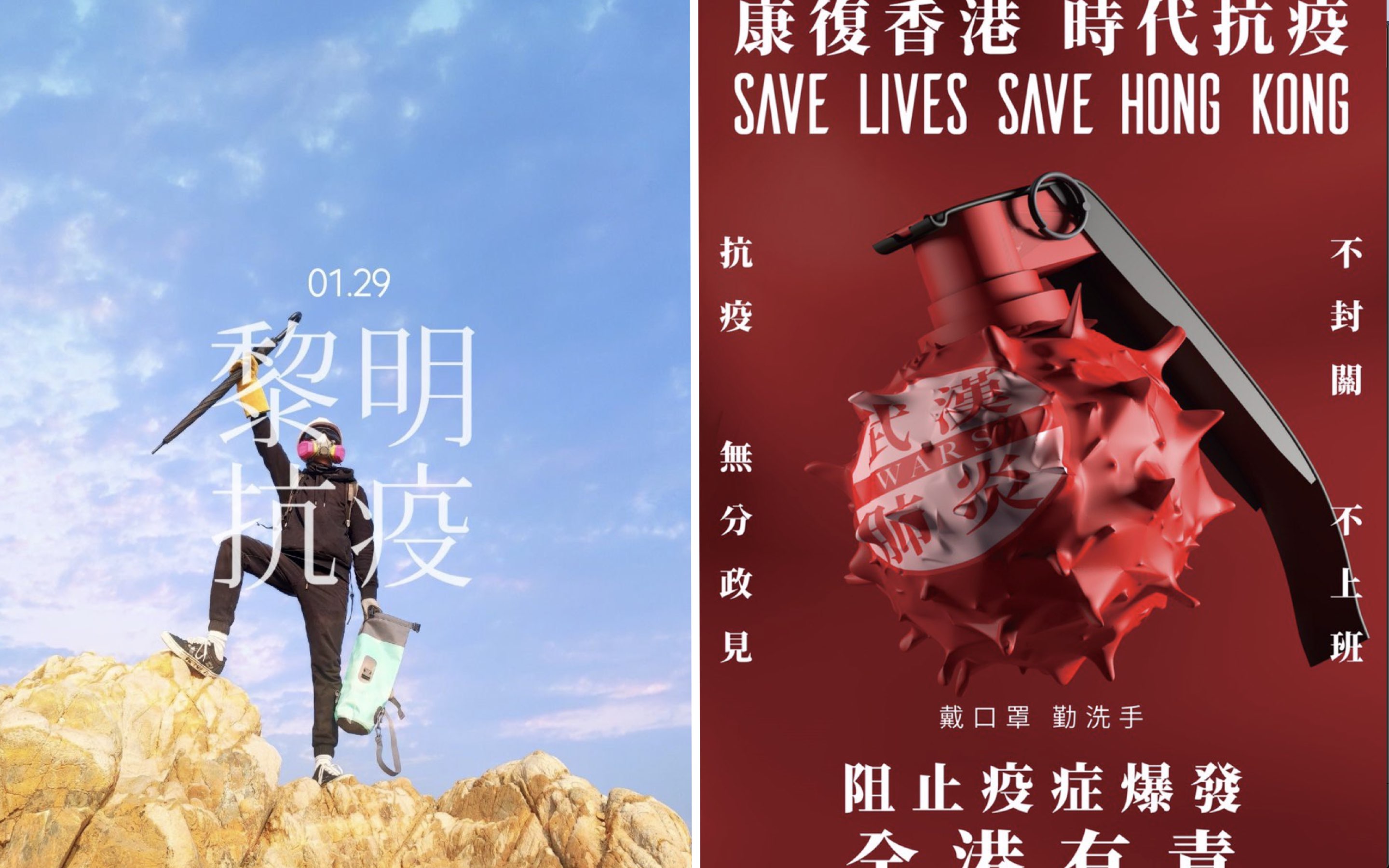Riot police have been spotted in multiple parts of the city following calls by protesters for a general strike today to push the government to close all borders as fears over the Wuhan coronavirus outbreak reach a fever pitch.
Online flyers featuring slogans saying “Strike for your life” and “Hongkongers save ourselves” have been circulating on protester channels like LIHKG and Telegram over the Lunar New Year weekend, with some calling on their cohort to block traffic on major thoroughfares like Castle Peak Road, Hennessy Road, and Nathan Road.
As govt’s handling of #coronavirus outbreak sparks fury in #HongKong, protesters are calling for a general strike on 1/29 in support of local medical staff and restarting operation dawn to block traffic in the morning. One major demand is to close the border. pic.twitter.com/DSHWvQhpSs
— Rachel Cheung (@rachel_cheung1) January 27, 2020
Calls for the general strike come despite the number of confirmed cases of the mysterious Wuhan coronavirus in Hong Kong appearing to hold steady at eight since Monday.
According to a statement by the Centre for Health Protection, the eight confirmed cases comprise five men and three women, aged 39 to 68. Those confirmed to have contracted the virus are still at Princess Margaret Hospital.
The CHP said that they have logged 451 cases that meet the reporting criteria for the coronavirus, including the eight confirmed cases. Of the 451 reports, 276 have been definitively ruled out, while the remaining 167 are still being investigated.
On Tuesday evening, Chief Executive Carrie Lam — who recently returned to the city from a trip to Davos — announced that the SAR’s borders will be partially closed, but that a full border shutdown would be “unwarranted,” and may actually block Hongkongers trying to re-enter the city.
Lam said that starting at midnight on Thursday, Jan. 30, services at six border checkpoints will be suspended. This includes cross-border rail travel at Hung Hom and West Kowloon, cross-border ferries at Tsim Sha Tsui and Tuen Mun, and border checkpoints at places like Sha Tau Kok and Man Kam To — although drivers carrying goods will be allowed to cross.
However, other major border control points such as Lo Wu and Lok Ma Chau will remain open. Cross-border flights from the city’s four airlines — Cathay Pacific Airways, Hong Kong Airlines, Cathay Dragon and Hong Kong Express — will be halved from Jan. 30, and the number of cross-border buses will be reduced.
While Lam said that the mainland authorities have agreed to suspend the “individual visit scheme” — where mainlanders are allowed to come into the SAR without joining a package tour — Lam said that business travelers and those coming into the city for family reunions or other “legitimate” or “humanitarian” reasons will still be allowed in.
When asked by reporters why the authorities have stopped short of closing all 14 of the city’s border checkpoints, Lam said: “The meaning of so-called complete closure of the border control points is very difficult to understand because there are such a large number of Hong Kong people traveling between these places… so to stop all passenger traffic on such a massive and comprehensive scale is not warranted.”
In the past few days, representatives from the medical sector and pro-democracy lawmakers have called on the authorities to close the borders completely.
On Tuesday, the largest pro-Beijing party, the DAB, urged Lam and her administration not to rule out closing the borders, with DAB lawmaker Holden Chow saying these were “very exceptional circumstances,” and that they needed to prevent the spread of the coronavirus.
At a press conference on Tuesday evening, representatives of the medical sector — including Hong Kong Public Doctor’s Association head Arisina Ma, University of Hong Kong Centre for Infection President Ho Pak-leung, and district councillor and member of the Frontline Doctors’ Union Kwong Po-yin — have said the government decision to restrict the flow of mainlanders into the city instead of halting it entirely was inadequate.
Ma said that she hoped officials would listen to the concerns of medical workers, saying that some frontline medical staff are getting increasingly worried about whether local hospitals have enough supplies of protective equipment, and said some hospitals have had to ration protective equipment.
Kwong added that some patients have also been hiding their travel history and symptoms, putting doctors and other patients at risk, while Ho added that relying on people to report on their own travel history was not enough.
Fears over the virus, meanwhile, have prompted a panicked run on protective face masks among ordinary citizens.
Photos and livestreams today showed huge lines in places like Tai Po and Diamond Hill as people waited to get their hands on the protective gear.
people queuing up in a super long queue at Taipo to buy mask #Wuhan #WuhanCoronavirus pic.twitter.com/MnTSHVoGHX
— Studio Incendo (@studioincendo) January 29, 2020





Reader Interactions